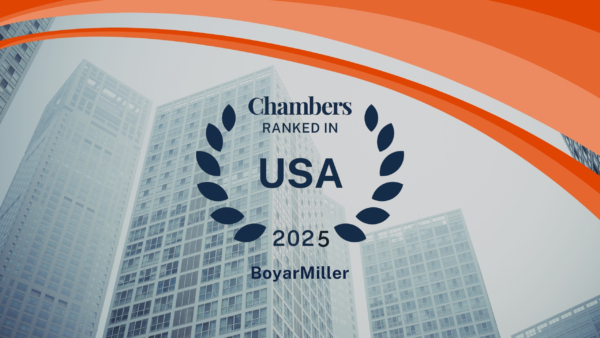With a deep understanding of your business alongside clear and honest communication, we help clients face challenges fearlessly.
Contact us today to learn more about our services and how we can help drive solutions.
Is Your Business Ineligible For A PPP Loan?
April 4, 2020
On April 3, 2020, the U.S. Small Business Administration issued an Interim Final Rule offering some formal guidance and requesting comments from the public on the key provisions of the Paycheck Protection Program. Importantly, the Interim Final Rule states that the following list of borrowers are ineligible:
1. Individuals and businesses engaged in any illegal activity under federal, state, or local law.
2. Household employers (i.e. individuals who employ nannies or housekeepers).
3. Entities that have an owner that owns more than 20% of the equity that has been incarcerated, on probation, on parole, presently subject to an indictment, arraignment, or other criminal charges brought in any jurisdiction, or has been convicted of a felony within the last 5 years.
4. Individuals or entities (including affiliates) that obtained a direct or guaranteed loan from the SBA or any other Federal agency that is currently delinquent or has defaulted within the last 7 years and caused a loss to the government.
In addition to the list above, the Interim Final Rule also specifies that except for nonprofit organizations authorized under the CARES Act, the following businesses listed in 13 CFR 120.110, which are further described in the SBA’s Standard Operating Procedure (SOP) 50 10, Subpart B, Chapter 2, are ineligible:
1. Financial businesses primarily engaged in the business of lending, investments or factoring, such as:
- Banks
- Finance companies
- Bail bond Companies
- Other businesses whose stock in trade is money
2. Passive businesses, such as:
- Businesses that are owned by developers and landlords that do not actively use or occupy the assets acquired or improved with the loan proceeds
- Businesses that are primarily engaged in subdividing real property into lots and developing it for resale on its own account
- Businesses that are primarily engaged in owning or purchasing real estate and leasing it to accommodate other independent businesses that provide personal services (i.e. shopping centers, salon suites, etc.)
- Businesses that lease land for the installation of a cell phone tower, solar panels, billboards or wind turbines
- Businesses that have entered into a management agreement with a third party that gives the management company sole discretion to manage the operations of the business
- Apartment buildings and mobile home parks
3. Life insurance companies
4. Businesses located in a foreign country (except businesses in the U.S. owned by aliens may be eligible)
5. Pyramid sale distribution plans
6. Businesses deriving more than 1/3 of gross annual revenue from legal gambling activities
7. Private clubs and businesses which restrict patronage
8. Government-owned entities (except for tribal businesses)
9. Businesses engaged in promoting religion
10. Loan packagers earning more than 1/3 of their gross annual revenue from packaging SBA loans
11. Businesses providing prurient sexual material
12. Businesses primarily engaged in politics or lobbying
13. Speculative businesses, such as:
- Oil wildcatters
- Day traders
- Gold miners
- Builders of homes for future sales (except that businesses that construct homes for future sale with no sales contract in place may be eligible under the Builders CAPLines program (13 CFR 120.391))
This is not by any means an exhaustive list of ineligible businesses. The SOP contains over 10 pages of further descriptions of categories of ineligible businesses and in many instances includes exceptions and carve-outs with regard to such categories.
UPDATES AND CLARIFICATIONS based on the second Interim Final Rule titled “Interim Final Rule on Applicable Affiliation Rules” effective April 15, 2020:
- As to Item 9 above: A business principally engaged in teaching, instructing, counseling or indoctrinating religion or religious beliefs, whether in a religious or secular setting, will be eligible to receive PPP loans if it otherwise meets the eligibility requirements under the PPP thereby taking it out of the previous ineligibility standards set forth in 13 CFR 120.110(k). Also, the SBA affiliation rules may be waived if such faith-based organization’s affiliations are based on religious teachings or otherwise constitute a part of the exercise of such an organization’s religion.
UPDATES AND CLARIFICATIONS based on the fourth Interim Final Rule titled “Interim Final Rule on Requirements for Promissory Notes, Authorizations, Affiliation, and Eligibility” issued by the SBA on April 24, 2020:
- A business with legal gaming revenue (i.e. casinos) will be eligible to receive PPP loans if it otherwise meets the eligibility requirements under the PPP thereby taking it out of the previous ineligibility standards set forth in 13 CFR 120.110(g)
For more information or further clarification on whether a specific business is ineligible, please call us.




